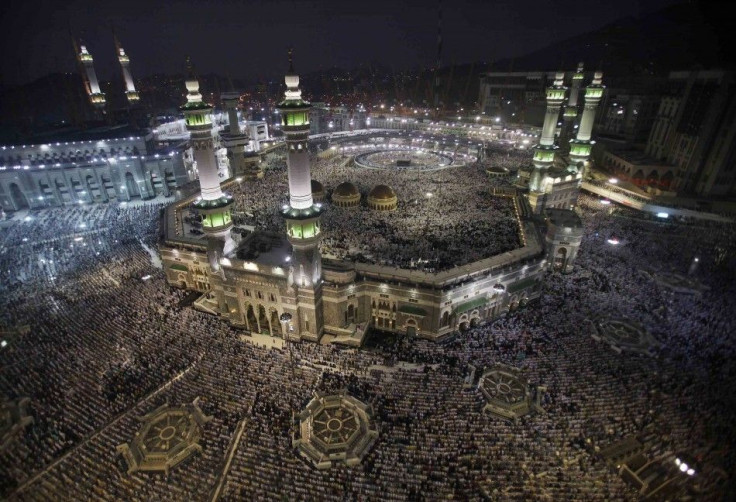Pilgrimage To Mecca: The Latest Health and Travel Advice For Muslim Hajj And Umrah With Regard To MERS-CoV
Certain Groups are Advised to Postpone Their Pilgrimage due to MERS-CoV

Pilgrims from Yorkshire and the Humber have been urged to check the latest travel advice before leaving for Hajj and Umrah. The National Travel Health Network and Centre, NaTHNaC Web site contains the details regarding the precautionary and health measures that the pilgrims should take.
The Kingdom of Saudi Arabia or KSA Ministry of Health has given out a list of precautionary measures that one must take while on the pilgrimage. This is done due to the international outbreak of Middle East Respiratory Syndrome Coronavirus or MERS-CoV. It has advised that those with chronic diseases, pregnant women, immunodeficient patients, elderly people and children must postpone the travel.
Some of the guidelines given by the KSA Ministry of Health to those travelling with respect to MERS-CoV include:
1. Tissues must be carried and disposed immediately after use while coughing or sneezing.
2. Pilgrims must make sure that they carry a disinfectant and wash their hands after coughing or sneezing.
3. Avoid hand contact with the eyes, nose and mouth. Use facemask as much as possible in crowded places.
4. As a precaution one must stay away from those who show symptoms of respiratory or other infections.
5. Regarding food, pilgrims must not eat undercooked meat, unwashed vegetables, and must drink only pasteurised milk.
The Fitfortravel.nhs.uk, a Web site that provides travel information for those travelling abroad from the U.K., stated that pilgrims are at risk of contracting malaria and blood-borne diseases. The cities, Mecca and Madina, are an area of high risk for malaria and the site states that during September to January the risk increases. Regarding blood-borne diseases such as Hepatitis B and Hepatitis C, it advises the pilgrims to stay away from barbers who work on the roadside as they still operate despite being unlicensed. Licensed barbers are checked and asked to dispose blades after a single use, but the site said that unlicensed barbers continue to function.
Though several precautionary measures have been asked to be taken and KSA Ministry of Health is even advising certain groups to postpone the pilgrimage. The World Health Organisation does not advise restriction of travel in relation MERS-CoV, as it stated that the overall risk of pilgrims from U.K. contracting the disease is low. According to Driffield Times and Post, the number of cases in KSA are only rising with 846 in the month of September of which 298 deaths have occurred among the residents.
Dr Stephen Morton, Centre Director for Public Health England in Yorkshire and the Humber said that pilgrims must familiarise themselves with the health guidelines and the latest health advises. Morton stated that since they have found that MERS-CoV is most likely transferred from camels, pilgrims are strictly warned to avoid camel products.
The site also stated that pilgrims must be cautious of the Ebola outbreak in West Africa s well. Visas are not being approved to those who have travelled to Ebola affected areas three weeks prior to their application. All visitors to the KSA will be screened for Ebola before entering the country.
Dr Dipti Patel, joint director of NaTHNaC, said that pilgrims will also have to be vaccinated for their safety.
Dr Brian McCloskey, national director of global health at PHE, said that the Hajj is the largest annual international gathering, more than two million Muslims come for the pilgrimage from world over and thousands are from U.K. as well. "A large population in one confined area has historically increased the risk of infectious disease outbreaks, which is why it is important to get the relevant vaccinations and to get travel advice from your GP or travel health clinic."




















